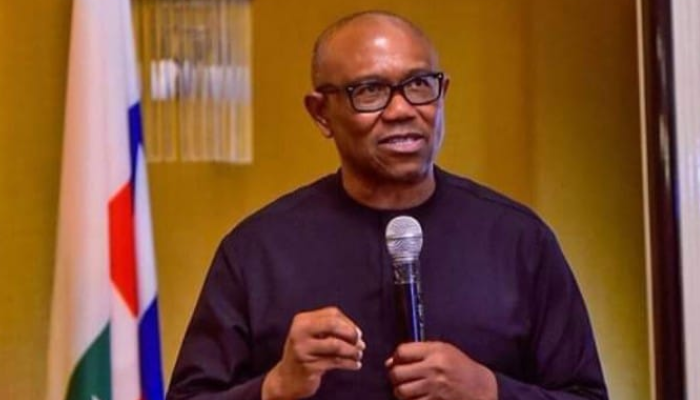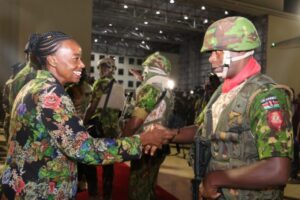
Peter Obi, the Labour Party (LP) presidential candidate in the 2023 election, has called on the federal government to give greater attention to the development of port facilities outside Lagos state.
The call followed the federal government’s recent approval of $1 billion (₦1.5 trillion) for the modernisation of the Apapa and Tin Can Island Ports in Lagos.
Obi noted that the development once again highlighted “a longstanding concentration of our port development only in Lagos.”
Writing on his X handle on Saturday, Obi said that while efforts to improve efficiency and embrace technology in the nation’s maritime sector are commendable, such initiatives must be guided by accountability, transparency, and equity for all Nigerians.
His remarks came amid similar appeals by leaders of the Arewa community, who urged President Bola Tinubu to fulfil his promise to complete the Baro dry port in Niger State.
According to Obi, “Nigeria’s infrastructure investment remains excessively concentrated in Lagos, often at the expense of other strategic ports such as Warri, Port Harcourt, Calabar, and Onne.”
He noted that if fully developed, these ports could enhance productivity, drive trade, create jobs, and open new economic corridors that would lift millions out of poverty across the federation.
“Around the world, countries that have decentralised port development are reaping immense economic benefits,” he said.
He cited the case of Vietnam, which operates over 300 ports — from Haiphong in the north to Da Nang in the centre and Ho Chi Minh City in the south — ensuring nationwide connectivity. “Indonesia boasts about 111 commercial ports distributed across its territory to guarantee balanced access to trade,” he added.
According to him, South Africa also maintains eight major seaports — from Durban and Richards Bay on the Indian Ocean to Cape Town and Saldanha Bay on the Atlantic — reflecting a vision of maritime inclusion.
“Egypt runs about 15 commercial ports along both the Mediterranean and Red Sea coasts; Morocco has about 14 ports open to international trade, including Casablanca, Tangier Med, and Agadir, distributed along its Atlantic and Mediterranean shorelines; while Algeria operates about 10 commercial ports spread across its extensive Mediterranean coast.
“Even Ghana, with only two major ports — Tema and Takoradi — has ensured they are geographically decentralised on opposite ends of its coastline.
“These nations have grasped a simple truth: no country seeking to maximise its blue economy concentrates all maritime activities in a single city. Decentralisation reduces congestion, improves logistics, enhances national security, and promotes balanced economic growth.”
Read also: Labour Party rifts deepen, cast shadow on Obi’s 2027 prospects
In the case of Nigeria, Obi noted that more than 70 per cent of port activities are still concentrated in Lagos, burdening the city with chronic congestion, high demurrage costs, environmental degradation, and delays that discourage investors and inflate the cost of goods nationwide.
“Developing other ports is, therefore, not merely an infrastructural necessity but a national imperative. Revitalising Warri, Port Harcourt, Calabar, and Onne would decongest Lagos, reduce shipping costs, attract investment, create employment, and stimulate regional economies.
“As one who understands the critical link between infrastructure, trade, and national growth, I believe that a truly national blue economy must carry every region along. Beyond physical infrastructure, reform must also address corruption,” he said.
He added that such initiatives would also help reduce bureaucracy and embrace technology to create a seamless, paperless port system that enhances turnaround time and global competitiveness. If prudently managed, the Lagos modernisation project could become a model for broader maritime transformation — a reference point from which similar development radiates across the nation.
“Now more than ever, Nigeria must rebuild with fairness, guided by equity, integrity, and a clear vision to transform our nation from one of consumption to one of production and shared prosperity,” Obi stated.





